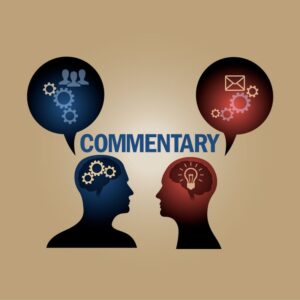 I saw the light, I saw the light
I saw the light, I saw the light
No more darkness, no more night
Now I’m so happy no sorrow in sight
Praise the Lord I saw the light
At the National Prayer Breakfast in Washington earlier this year, a group of my colleagues and I sang “I Saw the Light,” a beloved song by Hank Williams Sr.
It was a superb choice for the occasion, a rousing song expressing a message of grace. The lyrics indicate that for the singer, grace was unexpected. He compares Jesus to a stranger in the night and himself to the blind man given back his sight.
I thought at the time that much could be said to be unexpected about that gathering, too. Would I have believed it if you had said years ago that I would join people from all over the country as the Congressman from Virginia’s Ninth District to sing “I Saw the Light” at the National Prayer Breakfast?
No.
Then again, Hank Williams Sr. would likely have been surprised to have his song performed there, where the President of the United States, many of the Cabinet, Members of Congress, religious leaders, and diplomats gathered. He supposedly wrote it after being driven home by his mother from a show in Fort Deposit, Alabama. As he rode in the back, intoxicated, she told him when they neared a beacon at an airport, indicating they were close to home, “I just saw the light.” And the story goes that he had written the song by the time they arrived home.
The light came out of the darkness and night for Hank Williams. Such instances of grace are on the minds of many at this time of year as Christians observe Holy Week and Jews observe Passover.
Both holidays celebrate the extension of God’s grace, for Christians in the forgiveness of sins and the promise of everlasting life through the death and resurrection of Christ and for Jews in their deliverance from slavery in Egypt.
In these trying days, as our country faces a widespread infectious disease that has sickened many and put many more out of work, those of us who observe these holidays can take heart in their meaning, even as the routines of our lives are disrupted. The celebration this year is different because we cannot gather together, but the hope is the same.
Another verse of “I Saw the Light” goes:
I was a fool to wander and stray
Straight is the gate and narrow’s the way
Now I have traded the wrong for the right
Praise the Lord I saw the light
It would be difficult to say that Hank Williams always stayed on the narrow way toward the straight gate. He was a famously hard-living man, and that hard living would take his life at only 29 years of age. But he nevertheless came back again and again to “I Saw the Light.”
A biographer, Colin Escott, noted his habit of frequently including a hymn on radio shows and even bars, writing: “Even when he knew he had been weighed in the balance and found wanting in so many ways, he seemed to find rare peace in singing the hymns and living their sentiments in that moment at least.”*
Similarly, as the present crisis makes clear, the hope brought by Easter for Christians and Passover for Jews does not bring an end to all troubles in our lives. But those troubles do remind us that the hope is important.
So for all who are celebrating, I wish you a happy Easter and a happy Passover. And if you are so inclined, to join once more with Hank Williams:
I saw the light, I saw the light
No more darkness, no more night
Now I’m so happy no sorrow in sight
Praise the Lord I saw the light
* Colin Escott as quoted in “Behind The Song: Hank Williams, ‘I Saw The Light,'” https://americansongwriter.com/hank-williams-i-saw-the-light-meaning/
Congressman Morgan Griffith
To reach my office via email, please visit my website at www.morgangriffith.house.gov.
